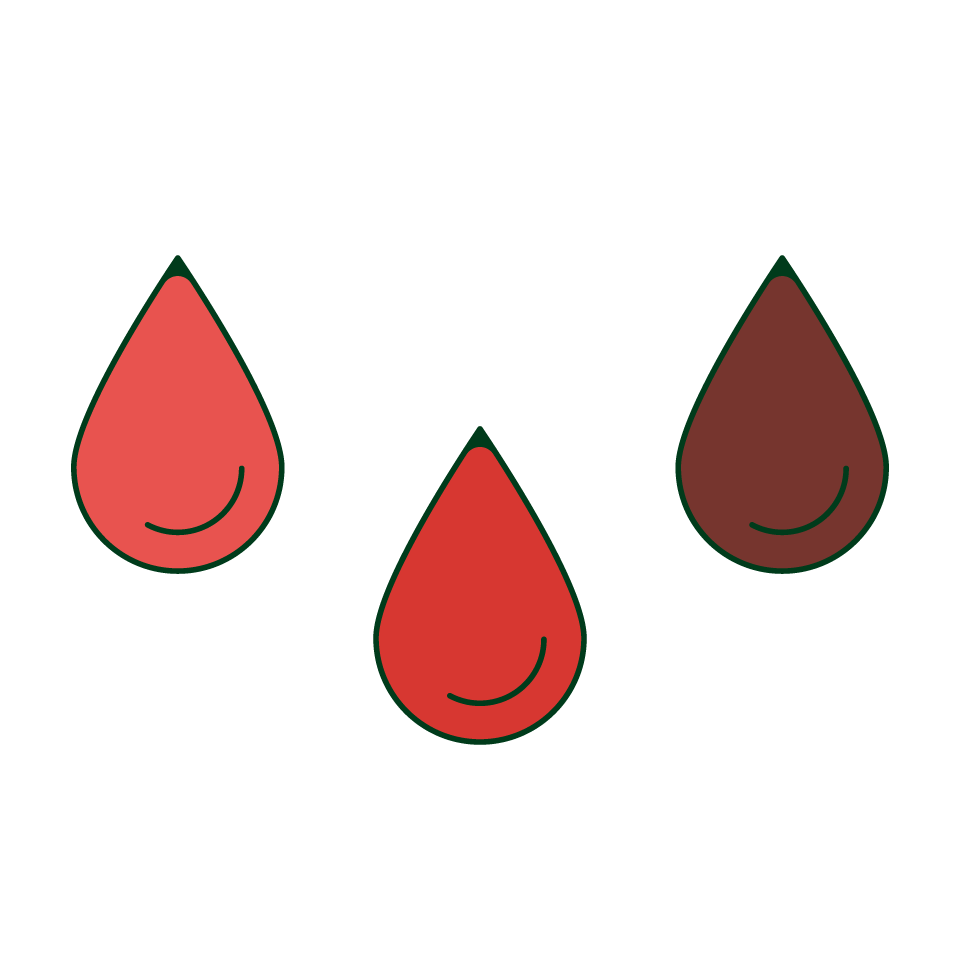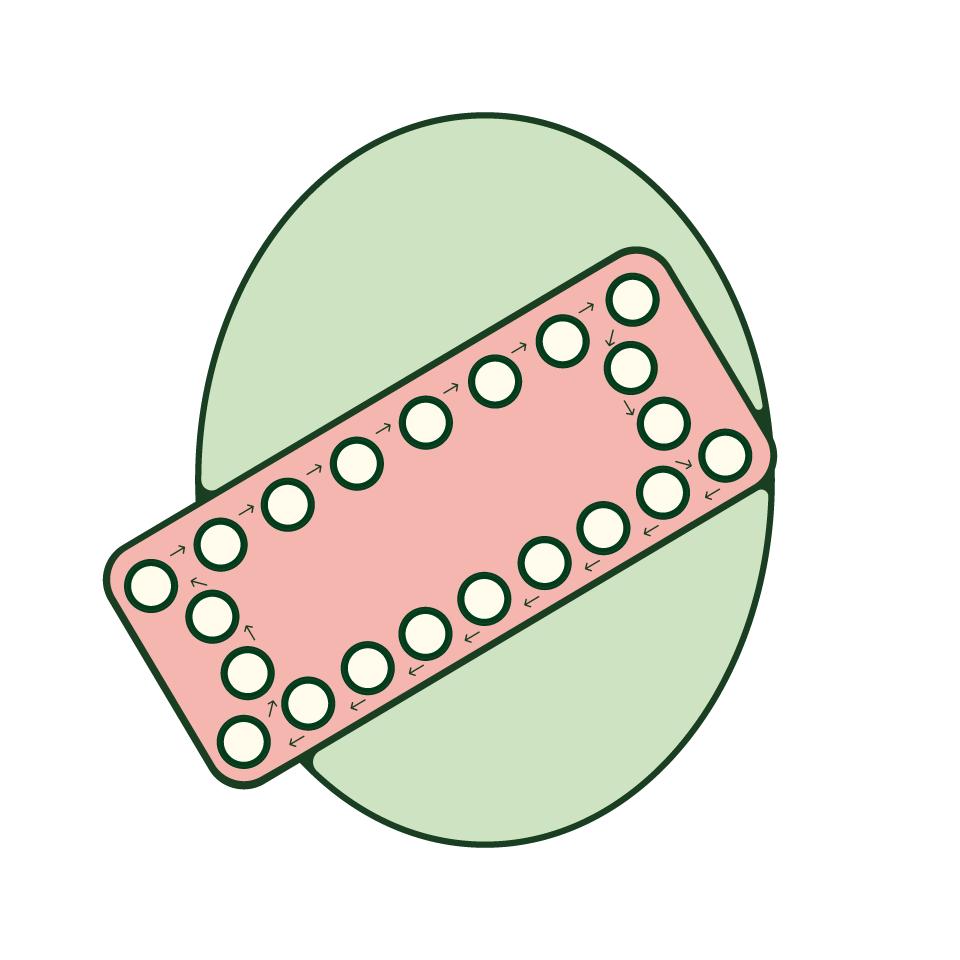After 9 months of no periods, nothing says ‘welcome to motherhood’ like than that first postpartum period. In fact, once you’ve given birth, bleeding begins right on schedule - whether you’ve had a vaginal birth or a cesarean section. This bleeding immediately post-birth is called lochia and is the way your body naturally gets rid of excess uterus tissue that it needed to house a tiny human for the last nine months. This lochia isn’t actually a period, instead, it’s a bloody discharge that lasts anywhere from ten days to a few weeks.
Once that’s over (thank goodness!) most people find their period restarts about 6-8 weeks after birth, but it can sometimes take much longer (up to a year) if you’re breastfeeding.
Whether it’s mere weeks or closer to a year, anyone who's been there will tell you that the first period after pregnancy is probably up there with your first-ever period as the most uncomfortable experience. I’d heard whispers from my antenatal group chat that the postpartum period wasn’t fun but wasn’t expecting just how heavy and painful it would be, all whilst trying to take care of another human at the same time with barely time for a shower. And I wasn’t the only one. “My first two periods after having my daughter in November were so bad I actually called my doctor. I was soaking through nighttime pads after ⅔ hours,” explains Heather Waldron.
Why does this happen?
“It is likely your first few periods will be different to before your pregnancy, while your body is again adjusting to menstruation and your menstrual cycle hormones are being produced again. It is common for women to report heavier, and more painful periods, with increased cramping and sometimes irregular cycle lengths. This is often as any residual endometrial (uterine) lining needs to come away after your pregnancy and also because the womb (uterus) has been stretched to accommodate your baby it may be larger than before, with more lining to shed.” explains Dr. Ellie Rayner, Obstetrician, and Gynaecologist and founder of The Maternity Collective.
Some women may have also started contraceptives at their 6-week postpartum check-up which can also affect your menstrual cycle. Whilst those who conceived whilst on or after only just stopping hormonal contraception, may not be used to a contraceptive-free period, which tends to be heavier.
For some, their first postpartum period can go on for much longer than it should.
If that’s the case, it’s important to speak to your GP to see if anything else is going on, as Anna Cargan, who runs the preloved kids' clothing store Build a Bundle, found. “My first post-baby period lasted twelve weeks and was horrendous. I became anaemic-I eventually found out that it was due to some sort of retained placenta which I had to go into hospital to sort,” she explains. “This is why it is really important to seek medical advice if you have very heavy bleeding or large clots or if any of your loss smells offensive, as this may be a sign of some remaining pregnancy tissue or infection that needs further treatment” explains Dr. Ellie Rayner.
However, in other cases, there is no real obvious cause for a severe postpartum period. Ruth Chubb, who runs Three Bears Cookery Club, experienced this after the birth of her third child. “I had a horrible experience whilst, out shopping, I lost a hell of a lot of blood. The bleeding just didn’t stop and I had to try different medications to stop it. Doctors never knew why it happened.”
Whilst you might just get back on track with your old monthly cycle after that first period, you may alternatively notice that changes stick around for good: it’s quite common for us to experience a new menstrual cycle after having a child; whether that’s lighter, less painful periods, a different cycle length or more painful, heavier periods.
“
My periods were heavy in the first place but after my son, I needed super plus tampons and thick pad EVERY HOUR.
This is something, almost three years on, I still experience. My periods are longer, heavier, and more painful than they were before my son was born. I spoke to some women who shared their experiences of this: “I got such short, light, and mostly symptom-free periods before my son but now I get cramps, greasy hair, breakouts, and such heavy periods.” says mum blogger Florence from Love from Florence Grace. “My periods were heavy in the first place but after my son, I needed super plus tampons and thick pad EVERY HOUR,” adds Rej Cullip.
As well as changes to my cycle, I also noticed my PMS was worse after having a baby.
For the first few months of my post pregnancy periods, my PMS was severe: I would feel incredibly low and the slightest thing set me on edge. Some who didn’t find PMS to be an issue before may find it worsen in those initial postpartum periods. Whilst this has definitely lessened a few years on, my PMS is still worse than it was pre-child. “ After having a baby, your body experiences huge shifts in your hormones as your body adjusts back to a pre-pregnancy state, in addition to this, you may be breastfeeding, which is also hormonally controlled, and likely experiencing significant changes in your routine, stress levels and ability to rest compared to before.” explains Dr. Ellie Rayner.
Whilst period changes after a baby are common, it’s important to speak to your GP to check there aren’t other factors at play here if they don’t settle down- whether it’s due to potential issues after giving birth or something like your thyroid being out of whack, which can be common after having a baby. “ It is normal for periods to be irregular and heavier than before for a few months after your baby, but if it persists longer then you should speak to your GP or a gynae health specialist. It doesn’t necessarily mean anything is wrong and the symptoms will likely still be related to your hormones adjusting and womb settling back down,” says Dr. Ellie Rayner. Whilst you might be told it can take time to settle, if it’s causing you problems, there should be treatment options, including getting on hormonal birth control, which will ease your periods.
“If you are finding your periods difficult to cope with and you are not wanting to get pregnant, it may be worth considering a form of contraceptive that regulates your cycle or reduces your bleeding altogether and your GP can talk to you about your options for these,” adds Dr. Ellie Rayner.
After consulting her doctor for experiencing extremely heavy periods post-baby, this is what Heather, did -and found relief from. “I am now back on the pill which has calmed my periods down” she adds. In more extreme cases like Rej, women with heavier periods can be prescribed tranexamic acid to help with bleeding. “I didn’t want to go on the pill but I couldn’t live with the pain! Now with the help of this, I’m back to my pre-baby periods!” she explains.
I myself opted against the pill but did book myself in for a private gynaecological appointment to check nothing else was going on. This reassured me and, like lots of women, has helped me just adapt to my new cycle.
Whilst becoming a mother was definitely the best experience of my life, it has caused my body to change-and that includes my menstrual cycle too. It was really reassuring to discover just how common this is but if you are finding yourself dealing with periods that are much heavier and more painful than normal, it is definitely worth chatting with your GP to see what they can do to help.


.png?ixlib=gatsbyFP&auto=compress%2Cformat&fit=max&w=1080&h=1080)

.png?ixlib=gatsbyFP&auto=compress%2Cformat&fit=max&w=960&h=960)



